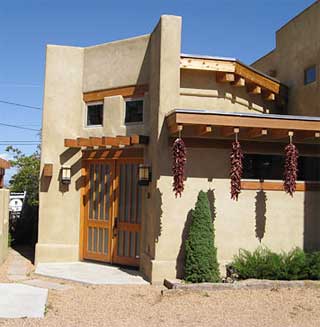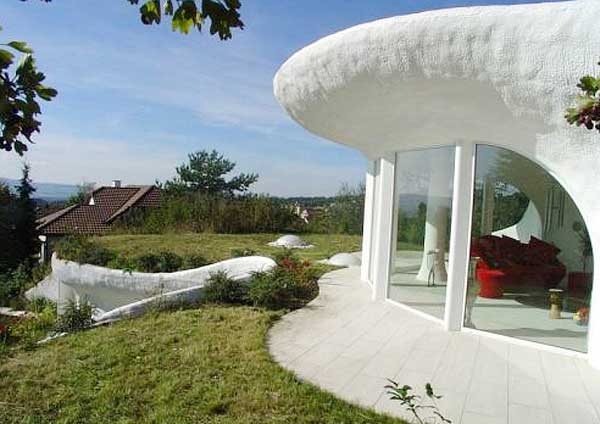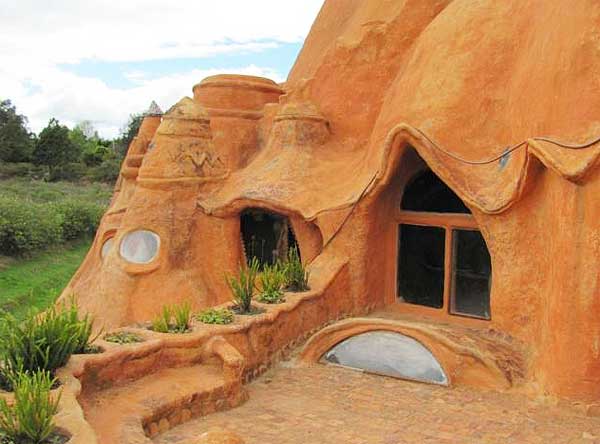Clay Houses
How does a zero-maintenance, low cost, and hazard free home sound?
It sounds pretty darn good if you ask me. Luckily, this goal isn't
too far out of reach thanks to the renewed interest in building
clay houses.
|
|

Modern Clay House |
Eco-friendly clay houses are produces using wet clay bricks which
are shaped and dried in order to harden. The drying process is
crucial because it is responsible for the strength of the home.
Particles in the clay fuse and develop extremely tight ceramic
bonds which are almost inseparable.
Now, I am not a rocket scientist or a rock scientist :) but the
concept is easy to understand. Clay houses are nearly invincible
to most weather conditions and un-phased by chemical attacks.
These benefits alone make clay homes a sound investment. However,
I have only touched the surface. Let's move on to the good stuff.
Cost
Clay houses like all homes have some upfront expense when building.
But costs are lower than traditional homes by as much as 50-percent.
In addition, maintenance for a clay house is very cheap. Think
about it. Clay won't warp, dent, rust, peel, get eaten alive by
termites, or experience any of the other problems that most homes
go through. Because of this, the only thing you really have to
pay for is accessories (paint, plumbing, electrical, etc).

Insulation
Clay houses do a great job of providing thermal and acoustic
insulation? What do I mean? Basically, if you live in a clay house,
you can expect to stay warm (or cool depending on the weather)
and not have to worry about major sound waves entering or leaving
the room. This is because clay has the ability to slowly absorb
heat and sound and release them in the opposite direction.
Flexibility
Since clay is such an active solution (can be molded easily),
it really gives you the option of warping the home exactly to
your liking. You see, cement blocks or bricks usually come in
standard sizes which you must incorporate into your building strategy
if you want everything to fit properly. With clay, you are the
ultimate creator and can morph and play with the shapes until
they are exactly to your liking. This is why Detroit automakers
usually develop concept cars with a clay outer coating first so
they can mold them into the desired design.

Fireproof
You would be lucky to burn down a clay home after you've poured
gasoline all over it and lit it on fire. This is because the material
that clay homes are produced from is very fire resistant. This
concept has been around for a long time. Back in the mid 1800's,
people became enlightened and began switching their wooden homes
for ones made of clay, mud or stone. Looks like things have come
full circle especially for environmentalists interested in green
homes and green home building.
Also, fireproof natural can save money of insurance premiums.
For example, homes which are in areas that are more prone to fires,
such as brush areas, have to pay more in insurance. Your insurance
company may give you a lower rate for insuring a house made of
clay against fire damage.
Conclusion
With people more environmentally aware today and also enlightened
as to how green homes can save big money in building materials
and energy savings it is no wonder that clay houses are making
a comeback.
|

